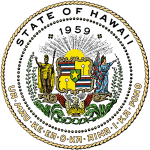RELEASE: OFFICE OF CONSUMER PROTECTION ANNOUNCES $550M SETTLEMENT WITH NATION’S LARGEST SUBPRIME AUTO FINANCING COMPANY
Posted on May 19, 2020 in News Releases, OCP
DEPARTMENT OF COMMERCE AND CONSUMER AFFAIRS
OFFICE OF CONSUMER PROTECTION
DAVID Y. IGE
GOVERNOR
CATHERINE P. AWAKUNI COLÓN
DIRECTOR
STEPHEN H. LEVINS
EXECUTIVE DIRECTOR, OFFICE OF CONSUMER PROTECTION
FOR IMMEDIATE RELEASE
May 19, 2020
OFFICE OF CONSUMER PROTECTION ANNOUNCES $550M SETTLEMENT WITH NATION’S LARGEST SUBPRIME AUTO FINANCING COMPANY
HONOLULU – The State of Hawaii through its Office of Consumer Protection (OCP), along with a coalition of 33 other states, today announced a settlement with Santander Consumer USA Inc. (Santander) that includes approximately $550 million in relief for consumers, with even more relief in additional deficiency waivers expected. The settlement resolves allegations that Santander violated consumer protection laws by exposing subprime consumers to unnecessarily high levels of risk and knowingly placing these consumers into auto loans with a high probability of default.
Today’s settlement stems from a multistate investigation of Santander’s subprime lending practices.
“This settlement sends a strong message to lenders that the consumer protection authorities will not tolerate attempts to take advantage of consumers by misleading them into taking out loans that they clearly cannot afford,” said Stephen Levins, executive director of OCP.
Based on the multistate investigation, the coalition alleges that Santander, through its use of sophisticated credit scoring models to forecast default risk, knew that certain segments of its population were predicted to have a high likelihood of default. Santander exposed these borrowers to unnecessarily high levels of risk through high loan-to-value ratios, significant backend fees, and high payment-to-income ratios. The coalition also alleges that Santander’s aggressive pursuit of market share led it to underestimate the risk associated with loans by turning a blind eye to dealer abuse and failing to meaningfully monitor dealer behavior to minimize the risk of receiving falsified information, including the amounts specified for consumers’ incomes and expenses. Finally, the coalition alleges that Santander engaged in deceptive servicing practices and actively misled consumers about their rights, and risks of partial payments and loan extensions.
Under the settlement, Santander is required to provide relief to consumers and, moving forward, is required to factor a consumer’s ability to pay the loan into its underwriting.
Santander will pay $65 million to the 34 participating states for restitution for certain subprime consumers who defaulted on loans between Jan. 1, 2010 and Dec. 31, 2019. For consumers with the lowest quality loans who defaulted as of Dec. 31, 2019 and have not had their cars repossessed, Santander is required to allow them to keep their car and waive any deficiency balance on the loan, up to a total value of $45 million in loan forgiveness. Santander will also pay up to $2 million for the settlement administrator who will administer restitution claims, and pay an additional $5 million to the states.
The settlement includes significant consumer relief by way of loan forgiveness. In all, Santander has agreed to waive the deficiency balances for certain defaulted consumers, with approximately $433 million in immediate forgiveness of loans still owned by Santander, and additional deficiency waivers of loans that Santander no longer owns but is required to attempt to buy back.
Under the terms of the settlement, Hawaii consumers will receive approximately $250,000 in restitution and $1.44 million in anticipated loan forgiveness.
Going forward, Santander cannot extend financing if a consumer has a negative residual income after taking into consideration a list of actual monthly debt obligations. Additionally, Santander is required to test all loans that default in the future to see if the consumer, at the time of origination, had a negative income. The test must include an amount for basic living expenses. If the loan is found to be unaffordable and the consumer defaulted within a certain amount of time, Santander is required to forgive that loan.
Santander is barred from requiring dealers to sell ancillary products, such as vehicle service contracts. Santander will also implement steps to monitor dealers who engage in income inflation, expense inflation, power booking, and Santander will enact additional documentation requirements for those dealers. Further, whereas Santander previously allowed these problematic dealers to waive documentation requirements on income and expenses, Santander no longer will allow such exceptions. If Santander has to use a default mortgage or rent payment value, the amount input must reasonably reflect the payment value for the geographic location. Finally, Santander will maintain policies and procedures for deferments, forbearances, modifications and other collection matters that all employees must follow.
Joining Hawaii in the settlement are the states of California, Maryland, New Jersey, Oregon and Washington, who comprise the executive committee; as well as the attorneys general of Arizona, Arkansas, Connecticut, the District of Columbia, Florida, Georgia, Illinois, Indiana, Iowa, Kansas, Kentucky, Louisiana, Maine, Michigan, Minnesota, Nebraska, New Hampshire, New Mexico, New York, North Carolina, Pennsylvania, Rhode Island, South Carolina, Tennessee, Utah, Virginia, West Virginia, and Wyoming.
# # #
Media Contact:
Jayson Horiuchi
Communications Officer
Department of Commerce and Consumer Affairs
Email: [email protected]
Phone: (808) 586-7582